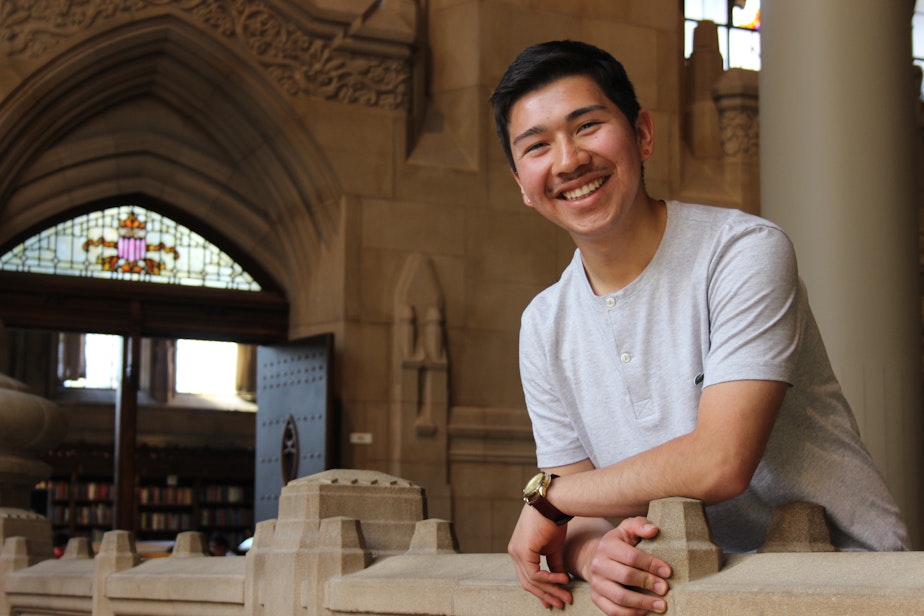I'm The Kid In Your Honors Class Who Crossed The Border Illegally

Hoping for a better life and education for my younger brother and me, my mother decided we should migrate to the U.S.
I was only 9 years old when we crossed the border illegally. With only a two-liter water bottle, we walked through the desert at night for two hours.
My mother carried my brother on her back, while I walked ahead of her. There was a point where my family had to split up to hide from Border Patrol. I was forced to sit in a pile of thorns surrounded by dry bushes.
I prayed for everything to turn out all right as I saw my mother walk across a parched field with my brother on her back. Luckily, my mother and brother caught up with us. We hid behind the dry bushes for 20 minutes waiting for a van that would take us to our next destination.
While we waited, my mother held my hand and looked me in the eyes. She told me that no matter the outcome of this trip, I had to be strong; that no matter what troubles life brought me, I always had to keep pushing forward. She emphasized that by coming to the U.S., I had the chance to make something of my life.
From that point on, I knew I had to grow up and take advantage of this opportunity. We had left everything behind in hopes of having a better life, and I could not let my mother down, nor myself.
My first year of school in Seattle was very challenging.
I did not speak English and my mother was unable to help me as she did not speak English either. There were times when my frustrations became so overwhelming that I would break down. It took time for me to realize that I had to do it on my own.
I turned that frustration into determination. During that year of school, my mentality shifted. I was no longer attracted to playing with toys; I had to grow up mentally. I had to take care of my 3-year-old brother. My mother had to work three jobs, and my father was not around to support us.
I'm a senior in high school now. When other students ask me what my grades are, and what classes I am taking, they seem surprised when I tell them I have As and Bs in most of my classes. They believe that simply because of my ethnicity I am not capable of succeeding in a challenging class.
I am looked at by other students as the Hispanic kid who will eventually drop out of school and work at a minimum-wage job. These remarks are often based on the fact that most of the Hispanic students at my school drop out, get in trouble and have bad grades. Hispanic students at Ingraham High School in North Seattle have a reputation for being affiliated with gangs and bringing trouble to the school.
My freshman year, a teacher said off-hand that Hispanic students should not come to school because we’re wasting everyone’s time. I took this and several other remarks as inspiration to do better in school.
I have worked hard to earn good grades. There have been times when I have struggled in some areas, but I always put in my best effort. I want to show people that a Hispanic student who is not a native English speaker is able to participate in a challenging class.
In honors classes, I was occasionally the only Hispanic student, and other students would doubt my intellectual abilities. At times even teachers had low expectations of me. They did not believe that I could stand out in an honors class. Even now, even though I am enrolled in International Baccalaureate classes, these doubtful remarks continue.
I have never let these comments stop me or bring me down. I have done my best to turn every harsh remark about my ethnicity or background into inspiration. I wanted to show those who doubted me that I am as capable as any other student.
Luis Angel Gomez-Castillo will be a sophomore at the University of Washington. This piece is a combination of two essays he wrote for his college application. He plans to be a doctor.
The Seattle Story Project: First-person reflections published at KUOW.org. These are essays, stories told on stage, photos and zines. To submit a story – or note one you've seen that deserves more notice – contact Isolde Raftery at iraftery@kuow.org or 206-616-2035.
